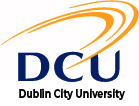BSc in Aviation Management
Key Points
Whether you are planning a career in aviation as a manager or as a commercial pilot, a foundation in industry business management principles is key to success in this challenging industry. and it changes quickly.
It is well known that, in the near future, the aviation industry will require more new pilots and other skilled personnel trained to operate the expanding global air fleet.
The first three years of the course provide a general introduction to business analysis, the aviation industry, the technical aspects of piloting, and relevant industry work experience. In the fourth year, the course is divided into two streams. Some students will choose to enter flight training to qualify as a commercial pilot; others will choose to enter the IAA’s Air Traffic Controller (ATCO) training program. The rest will remain at DCU to follow additional aviation and management modules.
Program description
The first two years of the Aviation Management course provide a general introduction to business analysis, the aviation industry, and the technical aspects of piloting. The DCU is recognized as a Registered Training Facility (RTF) by the Irish Aviation Authority (IAA) for the theoretical knowledge required to acquire the Private Pilot License (PPL). The flight element of the PPL is the responsibility of the student.
The third year of the course begins with a four- to six-month INTRA job in an aviation-related environment.
The second half of the third year is made up of specialized business and aviation modules.
In the fourth year, the course is divided into three streams. You can choose to stay at DCU and study additional modules in management and aviation. Or you can apply to the Irish Aviation Authority training program for Air Traffic Controllers (ATCO). Or you may choose to undergo integrated flight training at an approved Flight Training Organization with a view to qualifying as a commercial pilot (Airline Transport Pilot License (ATPL)) *;
Currently DCU approved flight training organizations include:
- National Flight Center (Leixlip, Co Kildare)
- Atlantic Flight Training Academy (Cork Airport)
- Flight Training Europe (Jerez, Spain)
- Oxford Aviation Academy (Oxford, UK)
Career options
Career areas
- Airline logistics and management
- Aviation lease
- International airlines
- National Airlines
Career prospects
- Business operations
- Logistics
- Flight operations
- Labor relations
- Public relations
Aviation is a high-tech, dynamic and competitive industry operating on a global stage. Both aviation management professionals and airline pilots need specialized skills in aviation management, and career options within the industry are diverse.
Program structure
Admission requirements
- As a general requirement, a Bachelor’s Degree / Baccalaureate Diploma / General Baccalaureate / Professional Degree from a recognized university with, minimum, is required a subject in mathematics.
- For international candidates, the foreign equivalent is required. In addition, an officially translated degree will be required.
- IELTS 6.5, with no less than 6.0 in any component (or its internationally recognized equivalent).
Learn more about our educational offer
Request your quote
An advisor will contact you by phone and email within the following hours

